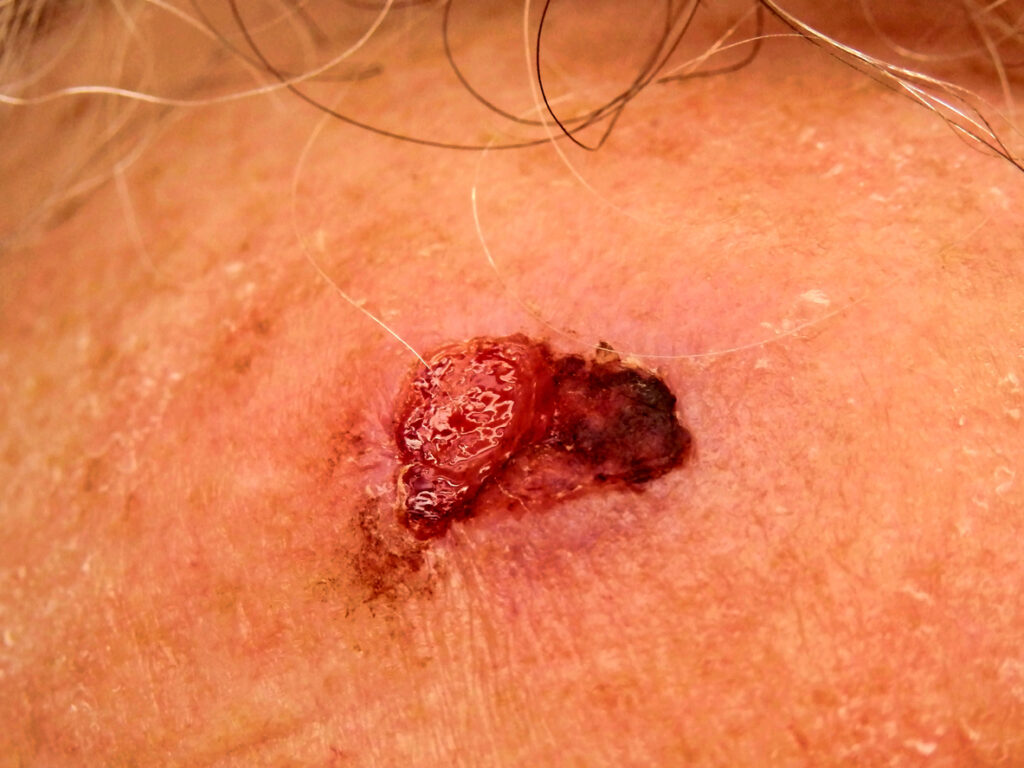Castle Biosciences, Inc.’s DecisionDx-SCC provides “significant, independent and clinically actionable risk-stratification” of Squamous cell carcinoma (SCC) patients including those in various high-risk subgroups, according to a study in Dermatology and Therapy.
The DecisionDx-SCC test is a 40-gene expression profile test developed and validated to improve the accuracy of metastatic risk prediction for patients with high-risk SCC, classifying patients as low (Class 1), higher (Class 2A) or highest risk (Class 2B) of regional or distant metastasis within three years based on the gene expression profile of their tumor.
The goal of this study was to present an independent validation of the DecisionDx-SCC test in a novel performance cohort (n=534) and then merge it with the test’s initial independent validation cohort (n=420) to evaluate the performance of the test in providing independent prognostic value to risk classification systems, individual clinicopathologic risk factors and clinically relevant patient populations.
In the study, DecisionDx-SCC demonstrated statistically significant risk-stratification of patients with high-risk SCC; 3-year metastasis-free survival rates were 94.1%, 81.1% and 56.8% for patients with Class 1, Class 2A and Class 2B test results, respectively. The entire population had 3-year metastasis-free survival of 87.5%. DecisionDx-SCC also provided significant and clinically actionable risk stratification in various patient subgroups, including National Comprehensive Cancer Network (NCCN) high and very high-risk, lower-stage Brigham and Women’s Hospital (BWH) tumors, and Medicare-eligible patients, further stratifying risk to help guide treatment decisions for these patients.
Generally, treatment pathways for patients with SCC are based on population-based estimates of risk, informed by guidelines and traditional staging systems (American Joint Committee on Cancer Staging Manual 8th Edition (AJCC8) and BWH) which use various clinicopathological risk factors to predict a patient’s risk of metastasis. Multivariate analyses demonstrated that DecisionDx-SCC Class 2A and 2B test results were independent and significant predictors of metastasis when evaluated in the context of NCCN risk stratification, AJCC8 and BWH staging, and various clinicopathologic risk factors, such as immunosuppression, poor differentiation, and tumor thickness (>6mm).
Integrating DecisionDx-SCC with individual clinicopathologic risk factors or risk classification systems (AJCC8 and BWH) significantly improved the accuracy for prediction of metastatic events. These data support the use of DecisionDx-SCC test results, informed by a patient’s tumor biology, to guide personalized patient treatment decisions aligned to a patient’s risk of metastasis over three years. These decisions could include risk-aligned reductions in treatment intensity for patients with low risk (Class 1) test results and intensified treatment, such as consideration of ART, for patients at a higher risk of experiencing metastasis (Class 2A and 2B).
“Data-driven risk assessment is the foundation of sound clinical decision-making,” says Ashley Wysong, MD, MS, lead study author, Professor, Distinguished Chair of Dermatology and Founding Chair of the Department of Dermatology at the University of Nebraska Medical Center in Omaha, in a news release. “Incorporating DecisionDx-SCC test results into the management of high-risk SCC can help ensure patients receive the best care possible by incorporating their biological risk of metastasis into the treatment plan. Use of the test in clinical practice can help with optimization of healthcare resources by reducing both overtreatment of patients with a low biological risk of metastasis and undertreatment of patients with aggressive tumor biology.”
“We continue to develop evidence showing that our test adds independent prognostic value to the clinical and pathologic risk factors used for guiding risk-informed treatment plans within current guidelines,” says adds Matthew Goldberg, MD, dermatologist and dermatopathologist, and Senior Vice President of Medical at Castle Biosciences. “The DecisionDx-SCC test result is interpreted by the treating clinician in the context of what they already know about their patient’s tumor to improve their prognostic accuracy and inform more closely risk-aligned management decisions with the goal of improving clinical outcomes for their patients with high-risk skin cancer.”


